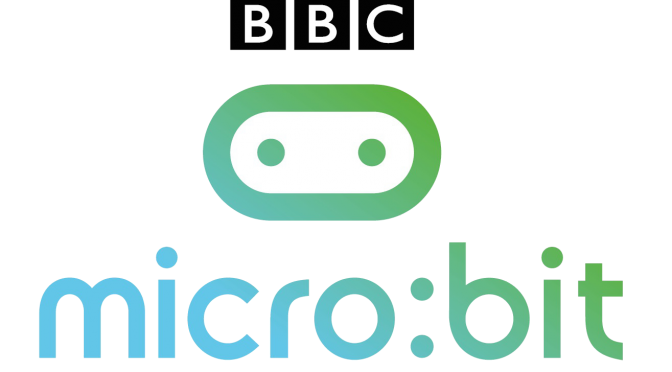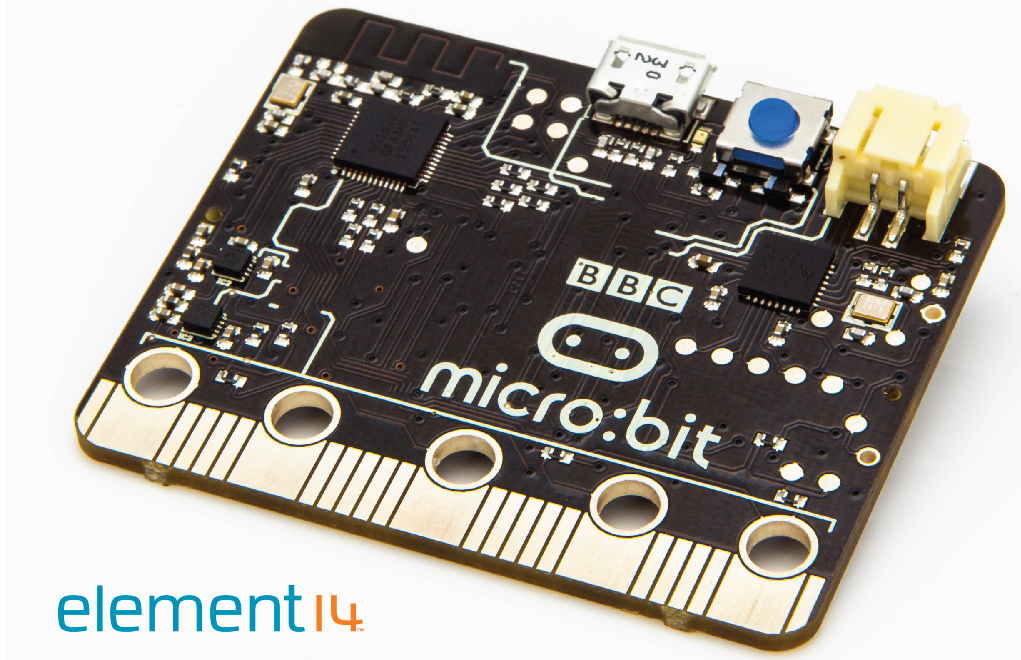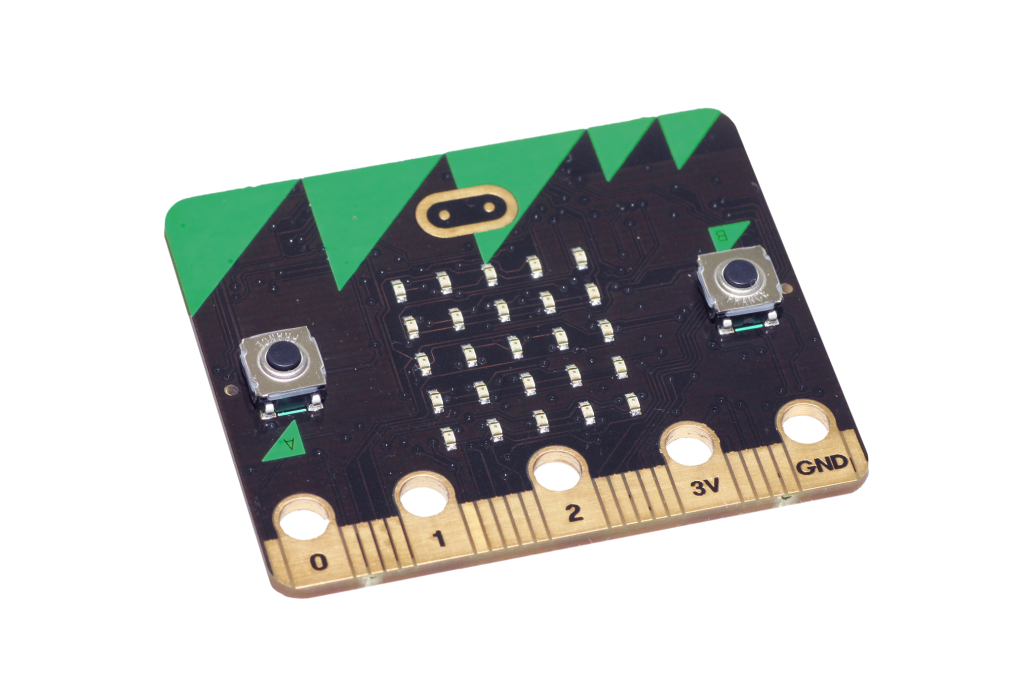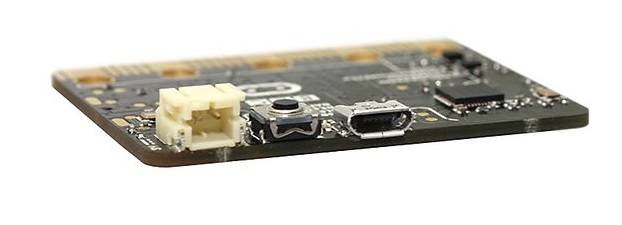Today saw the release of the final Micro Bit design. It looks slightly different to the prototype revealed in March but it boasts some interesting features.
The board still has the 25 LED grid and two switches but has dropped the coin cell holder in favour of a generic battery connector. The other most noticeable change is the overall shape is a simpler rectangle rather than the “beetle” design revealed in March.
At first glance this seems like a backward step but the change in shape allows for a 20 way edge connector. I suspect this will result in a number of accessories that the Micro Bit will plug into much like a games console cartridge (remember those?) or RAM module.
It has also gained a motion sensor which in itself will open up all sorts of possibilities for future projects.
Here is the front face of the Micro Bit. You can clearly see the two switches, LED grid and 20 way edge connector. The five labelled contacts are designed for crocodile clips or 4mm banana plugs.
Here is a side view showing the battery connector, reset switch and microUSB power connector :
Specifications
Size : 40mm x 50mm (1.6 inches x 2 inches)
Weight : 8g
Microprocessor : 32-bit ARM® Cortex M0 CPU
- Connector for adding AA battery pack
- 25 LED grid
- Status LED
- 2 buttons
- Reset button
- 20 way edge connector
- 3 axis Accelerometer (Motion sensor)
- 3D Magnetometer (Compass)
- Bluetooth
- Battery connector
The computer will be supported by a website where students can create, test and save scripts. These can then be transferred to the Micro Bit via a USB cable either via USB or Bluetooth.
When connected to a PC the Micro Bit appears as a mass storage device and can have files copied across to it much like a USB stick.
There will be a wide range of supported hardware such as laptops, tablets and mobile phones. Android and iOS mobile platforms will be supported so everyone is welcome to the Micro Bit party regardless of tribal allegiances.
The Micro Bit is still destined to be distributed to all 11-12 year olds in Year 7 but the date has slipped to October rather than the original date of September. This isn’t much of a surprise to people monitoring the projects progress but will allow teachers more time to plan its use in their class rooms.
“The BBC Micro Bit is all about young people learning to express themselves digitally.”
– Sinead Rocks, Head of BBC Learning
The Micro Bit Full Technical Specification provides more information about the boards features.
For further reading take a look at these articles :





2 thoughts on “BBC Micro Bit Computer’s Final Design Revealed”